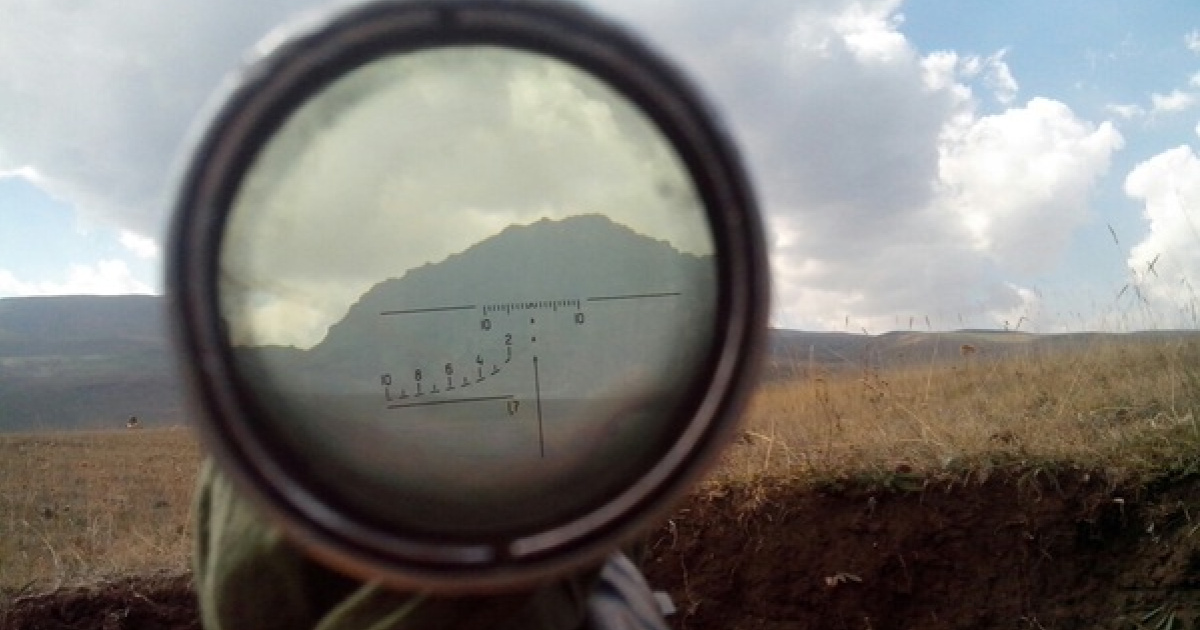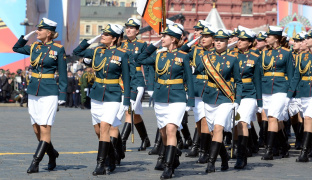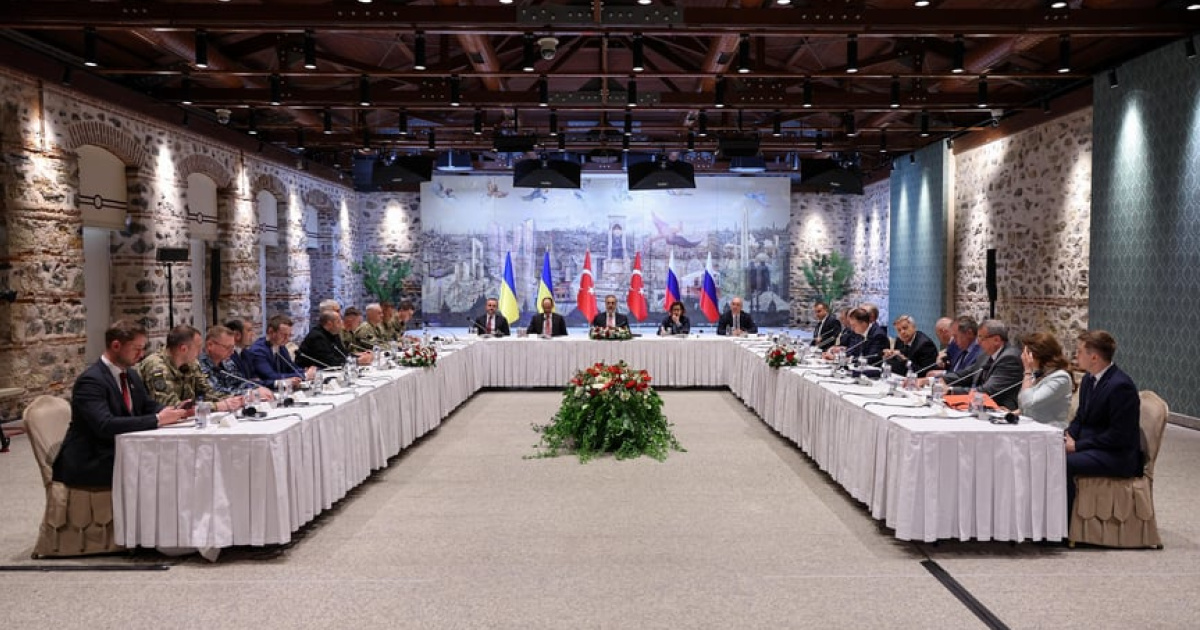Inability for business to work in Donbass in the normal legal framework encourages owners of local businesses and companies either to sell or to hide transition under Russian "protection".
Atlant’s fruitful transaction
In mid-April it became known that the new owners of a bakery, pasta factory, Makmal mayonnaise factory located in Makeyevka and Donetsk combine of bakeries and other businesses were Russian Atlant group of companies.
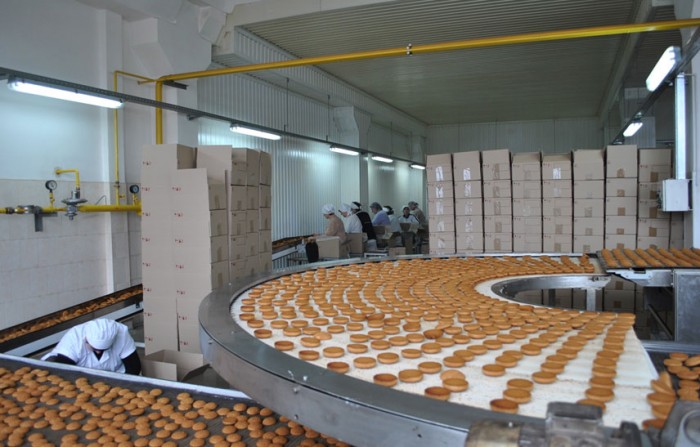
This story has several question marks. All these companies belong to Donetsk Urozhay Agroholding owned by local businessman Alexander Leshchinsky.
He started his business in turbulent 1990s together with Rinat Akhmetov. But then he went to France and settled down there for permanent residence.
A curious detail: Mr A.Leschinsky runs his business remotely which was renamed from Urozhay to Lauffer Group via many hours of conversations with senior managers on Skype and mobile phone.
He has been not only to Donetsk, but also in general to Ukraine for many years. It is obvious that there are grounds for such an unprecedented caution.
After all, co-owner of the Privat business group Igor Kolomoisky living in Geneva visits Ukraine personally to solve the most important issues for the business. The same applies to other oligarchs.
No less mysterious is a party to the transaction and the buyer. Atlant GC is not one of public diversified Russian business groups.
The search engine on request "Atlant group of companies" provides several options. But, the most suitable candidate in our case is perhaps the Atlant GC of the Moscow suburban Lyubertsy.
It cannot compete with Bazovyi Element or the Alfa Group with its size, but that there is doubt that its structure is more than serious, protected by respectable people.
"Atlant Group created by experts of Russian Ministry of Defense on December 25th, 1997 is currently one of the leaders in the Russian market of providing security services to corporate clients," – this is how the company presents itself.
Among the clients of Atlant there are: Moscow Kremlin (i.e., the administration of the President of the Russian Federation), the General Staff of the Russian Armed Forces, the FSS, the Russian Internal Troops of the RF, Central Bank (analog of the NBU) and the Accounts Chamber of the Russian Federation.
It is obvious that you can work with such clients only in one case: having close links at the top of the Kremlin's power groups.
Under the patronage of Vladimir Putin, if not personally, then, at least, some of his closest entourage.
And such a structure, in contrast to the classical Russian business groups like Alpha group, is not afraid to get under the economic sanctions of the West - its ultimate owners are already under these sanctions.
Now everything seems to be very logical: the General Staff and GRU of the Ministry of Defense are involved in providing military escort to operations in Donbass and structure that works closely with them and whose founders - former high-ranking generals of the same agencies - buys Ukrainian assets in Donbass.
The Lauffer Group confirmed the sale of companies in the "DPR" on May 5th announcing that now A.Leschinsky’s business was focused on the territories controlled by the Ukrainian government.
There is no doubt that the price was purely symbolic - in fact, it was severance for A.Leschinsky for lost business. It can be compared to the situation as if you gave your brand new car for scrap.
Energy deficit in dentistry
Son of fugitive ex-President of Ukraine Aleksandr Yanukovych who manages the business of his family and former deputy of the Verkhovna Rada from the Party of Regions, co-owner of the Donetsk ARS group Igor Gumenyuk - also perfectly understand the difference in the price on scrap and a good car.
However, according to market participants, Donbassenergo OJSC - a company that combines Starobeshevsk and Slavyansk Slavic TPP.
The reasons for this decision are the same as that of the owner of the Urozhay: the new authorities in Donetsk do not welcome the former "masters" in the region.
Freezing the armed conflict for an indefinite period of time after signing "Minsk-2" agreements does not answer the question of the resumption of the pre-war business as usual.
According to the decree of the Cabinet of Ministers of Ukraine as of May 7th, 2015, Starobeshevsk TPP located on the uncontrolled territory does not receive payment from the Ukrainian Energrynok State Enterprise for produced and sold electricity.
In fact, it does not have a normal distribution area, as the "DPR" industry is in a coma and can not provide the necessary loading of energy units.
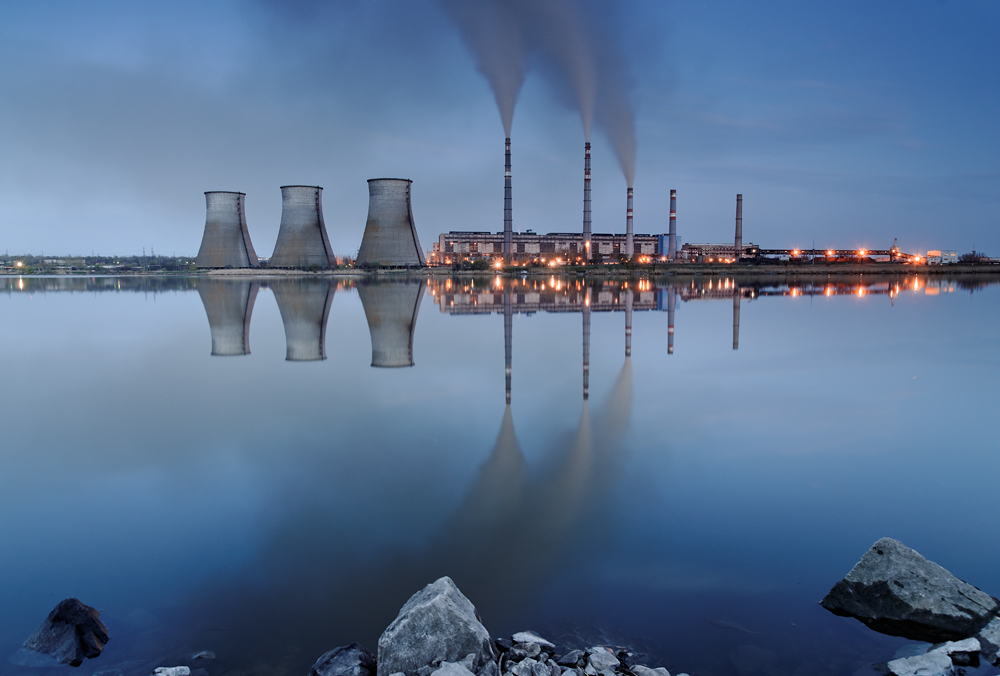
Starobeshevsk TPP
Slavyansk TPP has another problem - its power units are constructed in a way that only anthracite coal which is mined on the territory of the "DPR" - "LPR" can be used.
Because of that, it has constant breakdowns, especially during the heating season. I.Gumenyuk and A.Yanukovych fail to establish a stable import of anthracite from South Africa, like DTEK and state Centrenergo OJSC. The owners apparently do not want to spend money on conversion of boilers for other kinds of coal.
That's why the company has generated loses instead of the revenue for the third year in a row: nobody cancelled semi-constant costs for maintenance and service of thermal power plant and there is nothing to compensate them, income is minimal.
In such a situation to sell the car even at the price of scrap is not the most stupid decision just to get rid of its maintenance costs.
Another thing is that only Atlant and similar structures are interested in Donbassenergo.
DTEK is also facing problems, R.Ahmetov’s holding is not ready to load its financial balance with additional losses.
Russian public business groups are also unlikely to complicate their life with unnecessary troubles. In a nutshell, Donbassenergo has become a classic suitcase without a handle.
You’ll need to throw it away eventually. In this regard, we can recall the Donetsk electrometallurgical factory bought by Russian public Mechel business group before the war.
They began to look for a buyer also before the war - because of Mechel’s own financial problems. But they haven’t found any buyer for 3 years: the company continues to be idle and its facilities are already cut into scrap metal.
It seems that A.Yanukovych and I.Gumenyuk will sell Donbassenergo in the same way. The "DPR" will not let to suspend work of the Starobeshevs TPP because it is a matter of life in the region.
Therefore, the choice is very limited for the current owners of Donbassenergo: either to continue to face losses or to transfer the company to some Atlant.
In this case, the second is more likely to happen as everything is in favour of Russians. In addition, they don’t take any risks.
If the "Minsk-2" works – they "DPR" will have broad autonomy ruled by the pro-Kremlin authorities providing Atlant with trouble-free business.
If it does not work - everything will remain the same, it is again very good for Lyubertsy company and similar structures.
Buying a good car at the scarp price is a bargain in every respect. Especially if you do not need to deal with its official registration.
Akhmetov’s coal outcome
Selling business by former owners of Donbass is natural. It is associated with the loss of their former influence as a result of the war and lack of prospects for returning to the quo status.
In this context, it is logical to look for buyers for Krasnodonugol concern located within the "LPR" and is officially a part of Metinvest mining and metallurgical holding owned by R.Ahmetov.
Head of Krasnodon City Administration Sergey Kozenko told about search of a buyer in his interview to Luhansk TV. According to him, now only 10 out of 22 mines of Krasnodonugol operate.
"To say that they do not work rhythmically means to say nothing. There are problems with shipment, wagon delivery - very problematic," - said S.Kozenko.
Earlier Metinvest and DTEK also pointed out repeatedly in their official statements problems with the delivery of industrial goods from the uncontrolled territories.
In addition, unofficial sources have repeatedly given information about attempts of the "LPR leaders" to run Krasnodonugol on their own.
In these circumstances the transfer of concerns specializing in coking coal to anyone who wishes seems to be quite logical.
Metinvest owns United Coal Company in the USA that also mines coking coal. Therefore, needs of the Group Steel Division in Ukraine may be satisfied due to these deliveries.
Actually, now they do so. Although, of course, delivering coal from overseas to smelters in Mariupol isn’t cheap.
And its cost of production cannot be compared with Krasnodonugol: even if it is measured in dollars and at the moment the currency rate of "bucks" to UAH is 1:25.
However, it is still a way better option than buying coking coal from third-party manufacturers. In addition, the cost of maritime freight traffic has fallen by 2 times over the last year.
Besides, in mid-April the CEO of DTEK Maxim Timchenko said in an interview with the media that the holding company was thinking about selling the Obukhovskaya mine and Don anthracite mine in Rostov region.
According to his calculations, getting rid of coal assets in Rostov region of the Russian Federation with the annual output of 2.6 million tons will allow to reduce holding’s debt to creditors for about $ 436 million.
At the same time, the company has the overdue debt of approximately $ 760 million now both at the issuance of corporate bonds and bank loans.
Of course, such a transaction would allow to relieve pressure on financial balance of DTEK. Still there are several "buts".
The most important of them is the unprecedented fall in world prices on coal. At the moment, Australian thermal coal with delivery in July and September, is available for $ 47/t on CIF.
Coking coal from Australia with delivery in June can be purchased for $ 94/t on FOB. Colombian thermal coal on FOB is offered for $ 47/t.
For comparison, Australian thermal coal at the end of the I quarter of 2013 cost $ 90/t on FOB, South African - $ 85/t on FOB. We have drop in prices on an annualized basis by two times.
And, accordingly, revenues and profits are reduced by two times as well. It should be noted that in 2011 coking coal from Australia was generally sold at $ 250/t on FOB.
Therefore, when we compare the prices for 5 years then we’ll see decrease by 2 times.
Now I understand why the second in the world and the largest US coal company Peabody Energy announced the bankruptcy protection process in April this year.
Why Kuzbass Sibuglemet coal-mining holding went bankrupt, its creditor, the state Vnesheconombank of the Russian Federation, became its owner.
Now VEB is trying to find new owners for Sibuglemet, but so far unsuccessfully – nobody interested.
The lack of hype looks natural on the background of the closure of the US's largest coal mines and non-development of new fields in Australia in which due to lack of demand output drops.
Therefore, the sale of DTEK mines in Rostov region seems to be more problematic. And not only for the $ 436 million, but at least for $ 150 million.
At the same time, it should be noted that these assets could be theoretically bought by any Russian public business group. But considering the above situation in the global coal industry it is unlikely to happen.
And what can we say about Krasnodon which, in fact, is in the "grey zone" on the territory with an uncertain legal status and with vague prospects?
The range of potential buyers boils down to Lyubertsy Atlant and alike, as well as to local Atamans as Nikolay Kozitsyn that can be considered as customers very relatively.
It would be more appropriate to call them expropriators. Therefore, if the sale of Krasnodonugol takes place, in fact, it will differ little from expropriation.
Rent confusion
R.Ahmetov’s other asset - Khartsyzsk Pipe Plant, part of Metinvest is another story.
Russian media with reference to unnamed sources claim that the company is waiting for a large order from Russia.
At the same time, the Russian Pipe Industry Development Fund has recently made a new anti-damping investigation against imports of steel pipes from Ukraine.
According to the deputy head of the PIDF of the Russian Federation Andrey Komarov, the owner of the Chelyabinsk Tube Rolling Mill, the introduction of new protective duties on Ukrainian pipes for a period of 5 years is expected in July this year
Thus, "to receive a large order from the Russian Federation" is possible only in case of informal deals with the Kremlin curators of the "Russian Spring" in Donbass.
Meanwhile, sources in the Moscow government unofficially said that Khartsyzsk Pipe Plant worked, though not at full capacity but due to Russian orders.
Metinvest argues that it is not true and the enterprise remains officially in the holding.
Perhaps, they use a scheme similar to the one that former Vice Prime Minister Boris Kolesnikov applied to his Konti confectionery concern.
They transfer assets of Donetsk and Gorlovka confectioneries from Konti LLC to Tor SE on a rental basis.
According to unofficial information, the owner of factories have remained the same and some Russians have become a tenant.
There is the same information about another Donetsk Confectionery Concern - AVK transformed into Lakond.
However, "candy barons" of Donbass are hardly satisfied with the current affairs. Especially when "tenants", according to the "local authorities", pay taxes to the budgets of "republics" and this contributes to the preservation of the conflict, thus, exacerbating the problem of legal business there.
In addition, according to "head" of the Leninsky district of Donetsk Oleg Belyaev, they have problems with the raw materials and with the sale. For example, if before the war Conti factory produced 550 tons of sweets per day, now - 300-350 tons per month.
You don’t need to have a Harvard degree in economics to understand that enterprises at this level of production in any industry are very unprofitable for their owners.
So, to claim that they have found a solution to the issue on the resumption of the business would be too optimistic.
One can conclude that, despite the cessation of active hostilities now for 1.5 years, the economy of Donbass does not show any signs of recovery.
It encourages logically all to a redistribution of property: both directors of the "Russian Spring" and the owners of survived assets.
Another thing is that the new sharing is only a partial answer to the questions. Well, it helps to finalize the "maturing" for former owners of Donbass. But to assume that the Atlant and similar "new managers" will be able to restore the local industry in volumes, at least, approximately close to the pre-war is naive.
As OstroV noted, Putin and his business entourage’s interest is not simply in the economic recovery of Donbass – but rather opposite. A purchase of bakeries in the "DPR" by Atlant says more about the Russians have no alternative for the possibility to keep the social situation in the devastated region because normal business will not come to unrecognized territories and the bread is a strategic product.
Valeriy Baikalov, for OstroV
